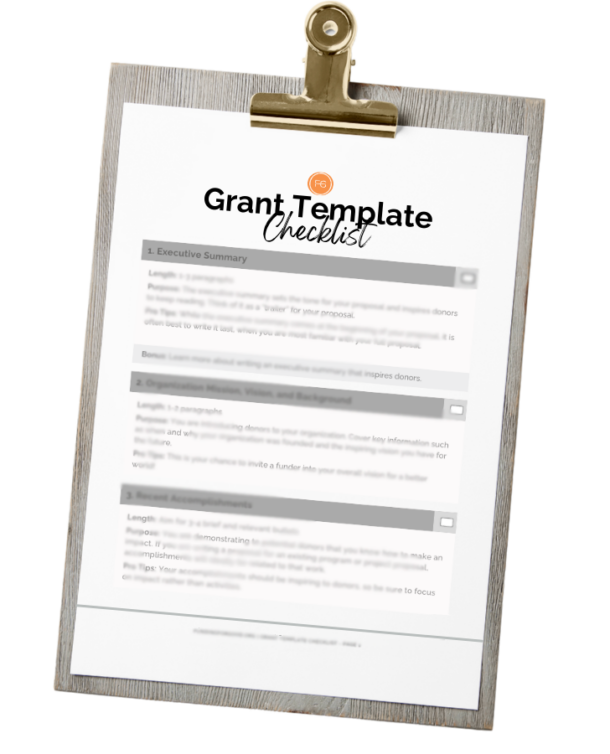Grant writing season is just around the corner.
Those of us who look forward to submitting requests for funding know that spring and fall cycles tend to produce deadlines that are uncomfortably close to each other. Grant season and writer’s block can go hand-in-hand.
The good news?
You aren’t sitting down to write a best-selling novel or even a moving piece of poetry.
You simply need to describe your organization and the amazing projects you would like a grantor to partner with you on to create lasting impact.
Here are a few tips to organize your thoughts and generate productive grant writing sessions:
1. Reality Check before Random Research
Before you begin cranking out every grant application that looks like a perfect fit on paper, do a reality check.
- What are your organization’s top funding needs?
- What are the timelines for securing funds?
- Can you identify programs that are ready for development and implementation?
It is important to know specific funding needs so you don’t waste precious hours researching random options that will serve as distractions rather than viable options.
2. Program Abstract
Before you even pick up the pen to write the grant take a moment to organize your thought and create a brief abstract of the program for which you are requesting funds. Jot down a WORD or BRIEF sentence to highlight a few key points:
- What is the need?
- Who is the target audience?
- How will your program serve that audience/meet that need?
- What makes your program unique?
- How is your program extraordinary?
- What does “success” look like in your program?
- Who will play a part in that success (community partners, sponsors, staff, etc)?
- What items will contribute to that success?
- What activities will contribute to that success?
- How will you know your project was successful?
- What would your community look like without this program?
3. Review Before Writing
Now that you have a few thoughts organized, the grant application process won’t seem as daunting. Read through the application from beginning to end before writing. Jot down those one word/sentence responses near the heading of the section where you believe they should be addressed.
4. Facts VS Fluff
Grant season and writer’s block don’t have to happen together. While it’s wonderful to be expressive, make sure each sentence serves a purpose. Grant reviewers often read hundreds of pages of applications. If they feel like they are reading too much “fluff” your application is more likely to be skimmed, not pushed to the top of the pile. Every sentence should support your request in one of the following ways: hard facts/data to support the need/program design, the heart behind the program, and/or the impact your program will have on the target population.
5. Get Feedback
If you feel your writing process is getting stalled. Take a moment to connect with those who will be implementing the program or benefiting from it. Ask them to sum up a quick response to the grant question that has you stumped!
How to Write Quality Goals and Objectives
Keep Growing for Good!


